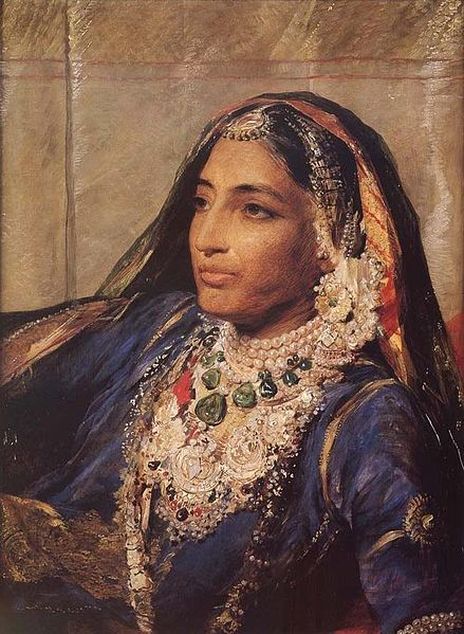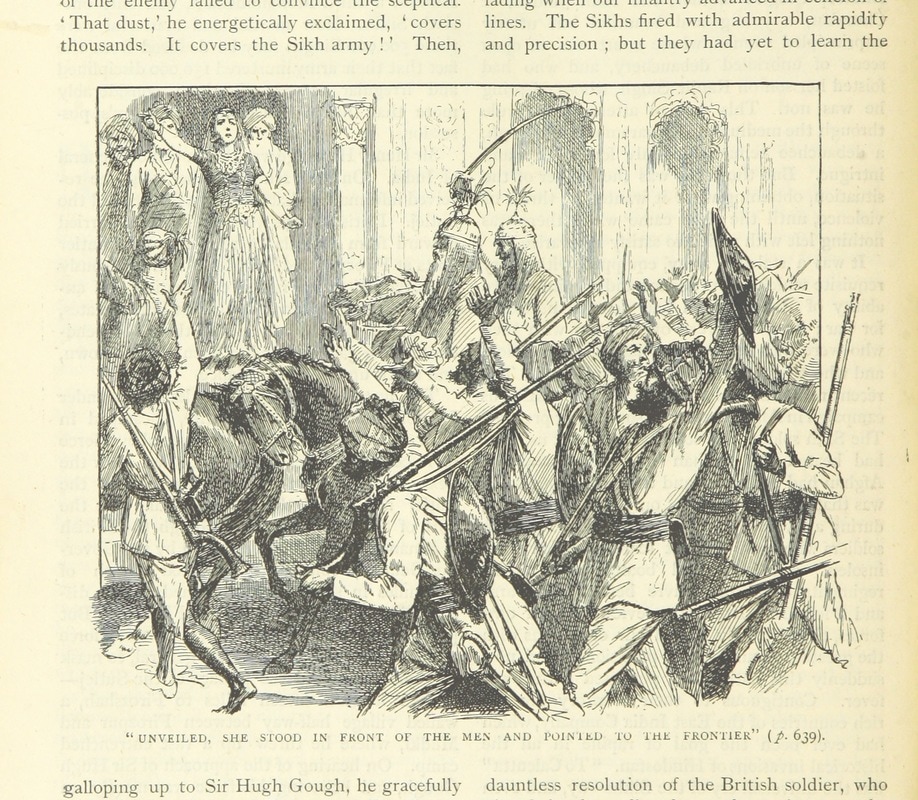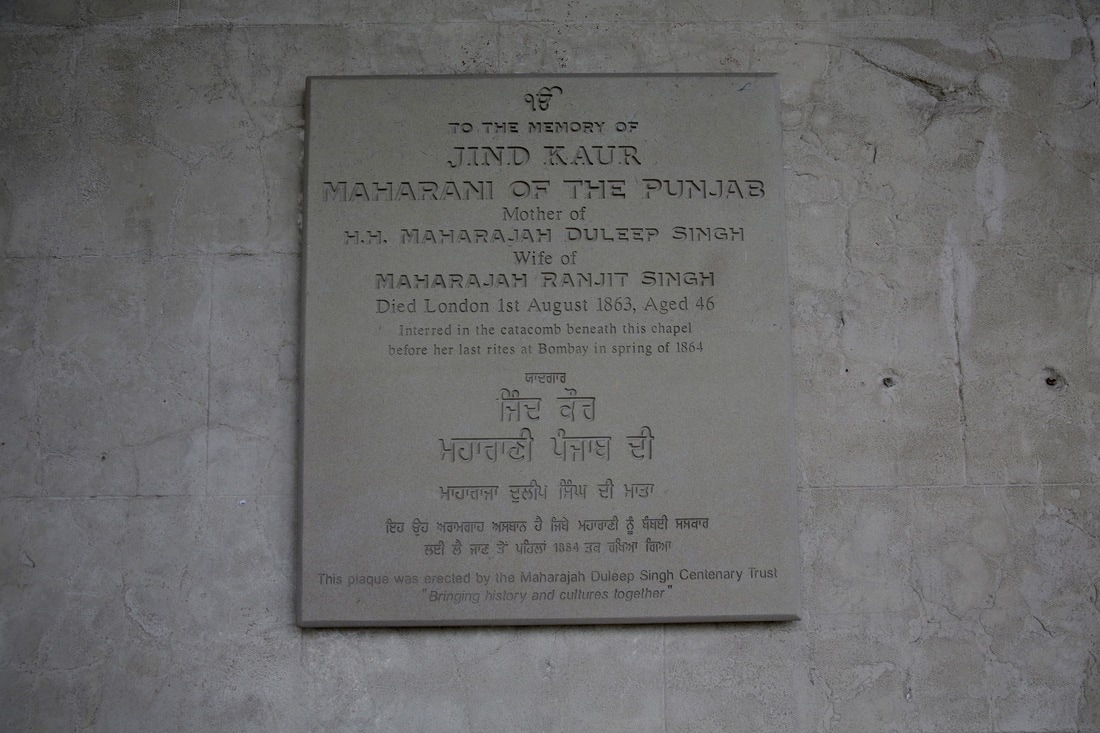|
Maharani Jind Kaur may well be the most powerful woman you’ve never heard of. Popularly known as Rani Jindan, she engendered fear among the British Empire. Kaur agitated and encouraged rebellion.
Born in Gujranwala, Punjab, she became the youngest wife of Maharaja Ranjit Singh. He died in 1839 leaving Jind Kaur a widow with a baby son, Duleep Singh. Breaking convention, Kaur did not become a sati, a funeral custom in which a widow sacrifices herself on her husband's pyre. With her child as the default ruler, Kaur took control of the government and the army on her son's behalf. Casting off her veil, she rallied the troops for a fight against British rule. When the British declared war against the Sikhs in 1845, her troops met them at the border. British occupation was not something Kaur would accept, but something she would have to live with. The British troops swept her armies aside. The rebellious nature of the Maharani proved to be a liability to the British and she was replaced in December 1846 by a Council of Regency. Her power and influence did not wane and in 1847 the British imprisoned her, first in the Lahore Fort and then the fortress in Sheikhupura. She was then exiled from Punjab and imprisoned in the Chunar Fort. Her son, Duleep Singh, was sent to England to become a Christian. Learning English, with his English friends, including a young Queen Victoria, the Maharaja was ripped from his roots. Kaur’s imprisonment incited fury among Sikhs. To quell resentment, the British administration launched a smear campaign. They labelled her a sexual deviant who used her beauty to beguile men. However, she could not be easily contained and her most amazing feat was yet to come. Whilst imprisoned at Chunar Fort, she disguised herself as a servant and escaped. An 800-mile journey to Kathmandu in Nepal followed. There, she attained refuge and stayed for 11 years. Taunting her former captors, Kaur boasted she had liberated herself through magic. After years apart, she re-joined her son in Calcutta. The British assumed that her mature age rendered her impotent against the Empire. The duo were forced to leave for England where they settled, albeit still kept apart. Unperturbed, Kaur made one last attempt to gain victory over the British. Under his mother's teaching, Duleep Singh too rebelled against the British. He foolhardily tried to persuade the Russian Tsar to rid India of British rule. But, with British spies following him, his attempt to reclaim his kingdom failed and he was publicly humiliated. Kaur’s rebellious spirit seemed to have petered out until her spectre emerged in one of her granddaughters, Princess Sophia Alexandra Duleep Singh. Like Jind Kaur, she rebelled against male authority, taking an active role in the UK suffrage movement. She even championed Indian self-rule. Jind Kaur died in her sleep on August 1, 1863. Her body was interred at the Dissenters’ Chapel in Kensal Green Cemetery before being taken to Mumbai. Kaur was a fierce opponent of British colonisation of the Indian sub-continent. Judged and derided in her day, Kaur has been vindicated by the anti-colonial struggles of the 20th Century. |
- Home
- The Project
-
Key Figures
- Andrew Ducrow
- Anthony Perry
- Anthony Trollope
- Baron Baker
- Charles Babbage
- Count Suckle
- Duke Vin
- James Barry, Dr
- Feargus O'Connor
- Frank Critchlow
- Harold Pinter
- Howard Staunton
- Isambard Kingdom Brunel & Marc Isambard Brunel
- George Bridgetower
- Jind Kaur
- Joe Strummer
- Kate Meyrick
- Kelso Cochrane
- Michael Abbensetts
- Pearl Connor
- Russ Henderson
- Thomas Wakley
- Wilkie Collins
- William Makepeace Thackeray
- The Reformers Memorial
- The Dissenters' Chapel
- The Exhibition
- Gallery
- Waking the Dead Blog
- Contact
- Links




